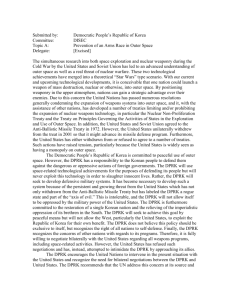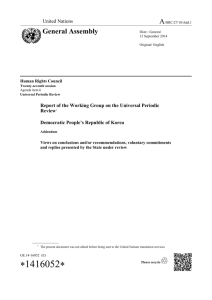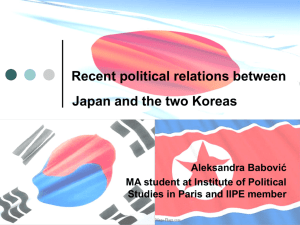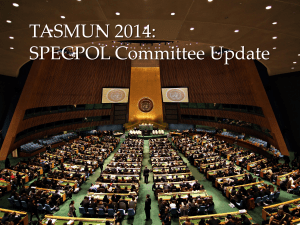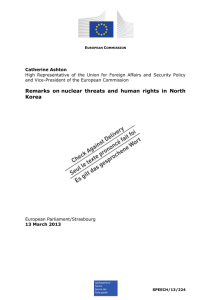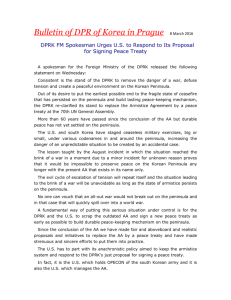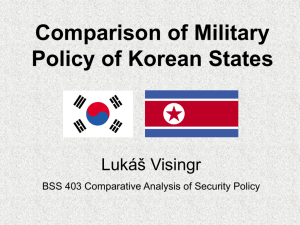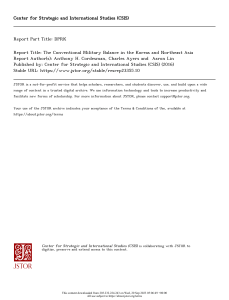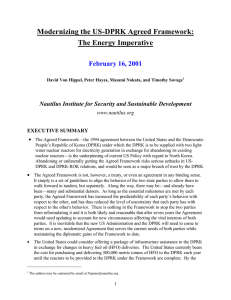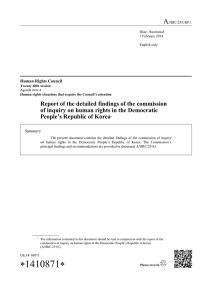ADVANCE QUESTIONS TO THE DEMOCRATIC PEOPLE’S REPUBLIC OF KOREA – ADD.2
advertisement
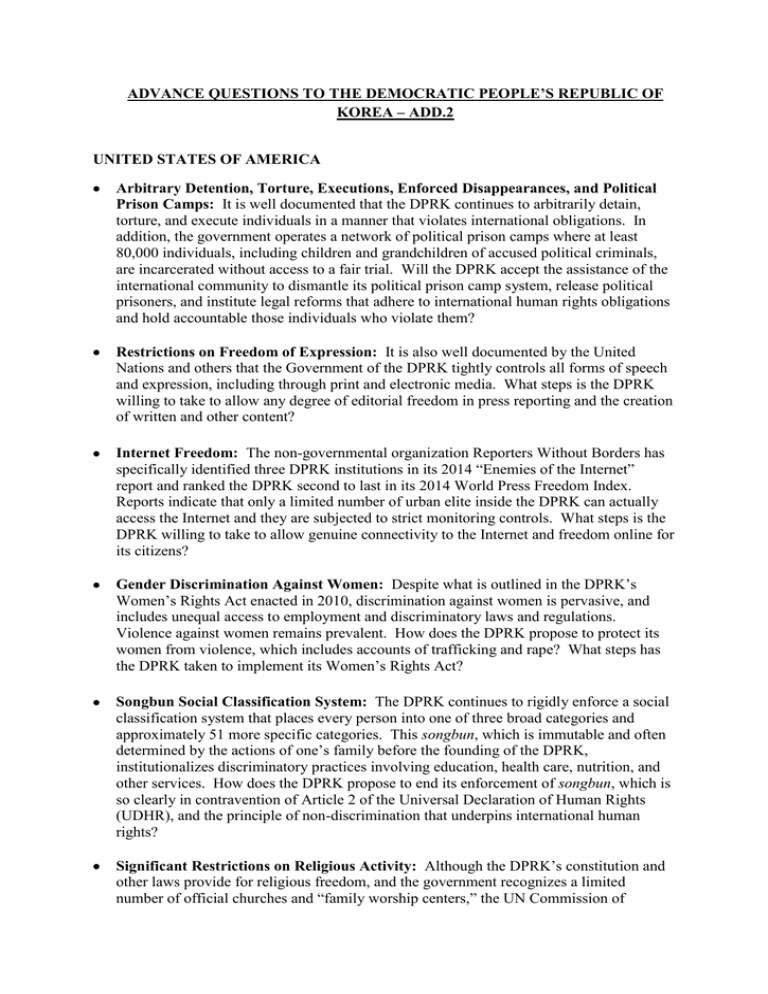
ADVANCE QUESTIONS TO THE DEMOCRATIC PEOPLE’S REPUBLIC OF KOREA – ADD.2 UNITED STATES OF AMERICA Arbitrary Detention, Torture, Executions, Enforced Disappearances, and Political Prison Camps: It is well documented that the DPRK continues to arbitrarily detain, torture, and execute individuals in a manner that violates international obligations. In addition, the government operates a network of political prison camps where at least 80,000 individuals, including children and grandchildren of accused political criminals, are incarcerated without access to a fair trial. Will the DPRK accept the assistance of the international community to dismantle its political prison camp system, release political prisoners, and institute legal reforms that adhere to international human rights obligations and hold accountable those individuals who violate them? Restrictions on Freedom of Expression: It is also well documented by the United Nations and others that the Government of the DPRK tightly controls all forms of speech and expression, including through print and electronic media. What steps is the DPRK willing to take to allow any degree of editorial freedom in press reporting and the creation of written and other content? Internet Freedom: The non-governmental organization Reporters Without Borders has specifically identified three DPRK institutions in its 2014 “Enemies of the Internet” report and ranked the DPRK second to last in its 2014 World Press Freedom Index. Reports indicate that only a limited number of urban elite inside the DPRK can actually access the Internet and they are subjected to strict monitoring controls. What steps is the DPRK willing to take to allow genuine connectivity to the Internet and freedom online for its citizens? Gender Discrimination Against Women: Despite what is outlined in the DPRK’s Women’s Rights Act enacted in 2010, discrimination against women is pervasive, and includes unequal access to employment and discriminatory laws and regulations. Violence against women remains prevalent. How does the DPRK propose to protect its women from violence, which includes accounts of trafficking and rape? What steps has the DPRK taken to implement its Women’s Rights Act? Songbun Social Classification System: The DPRK continues to rigidly enforce a social classification system that places every person into one of three broad categories and approximately 51 more specific categories. This songbun, which is immutable and often determined by the actions of one’s family before the founding of the DPRK, institutionalizes discriminatory practices involving education, health care, nutrition, and other services. How does the DPRK propose to end its enforcement of songbun, which is so clearly in contravention of Article 2 of the Universal Declaration of Human Rights (UDHR), and the principle of non-discrimination that underpins international human rights? Significant Restrictions on Religious Activity: Although the DPRK’s constitution and other laws provide for religious freedom, and the government recognizes a limited number of official churches and “family worship centers,” the UN Commission of Inquiry’s report indicated that North Korean citizens as well as foreigners who engage in religious practices and beliefs are arrested on that basis and subjected to extremely harsh penalties, including execution. What steps does the DPRK plan to take to abide by its own constitution and lift the significant restrictions on religious freedom and missionary activity for its citizens and visitors alike? Forced and Child Labor: The Commission of Inquiry’s final report documents the government’s operation of a network of “labor camps” to detain those charged with petty crimes for periods of two months to two years. In addition, the government operates prison camps where those accused of political opposition are often forced to work more than 12 hours per day in mines, factories, farms, and logging camps. Forced labor is used in the production of bricks, cement, coal, gold, iron, textiles, and timber in the DPRK. Children from the age of five are also forced to work in activities such as farming or cleaning. What steps will the DPRK take to commit to eliminating forced labor and the worst forms of child labor and to consider joining and seeking the assistance of the International Labor Organization (ILO) in addressing those and other relevant issues?
